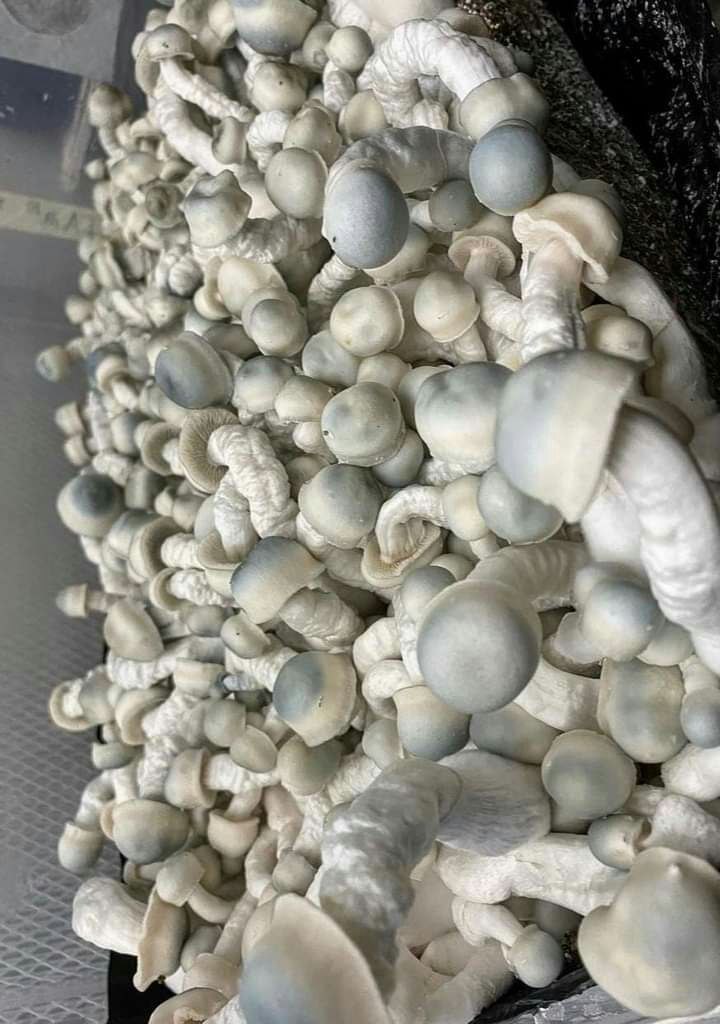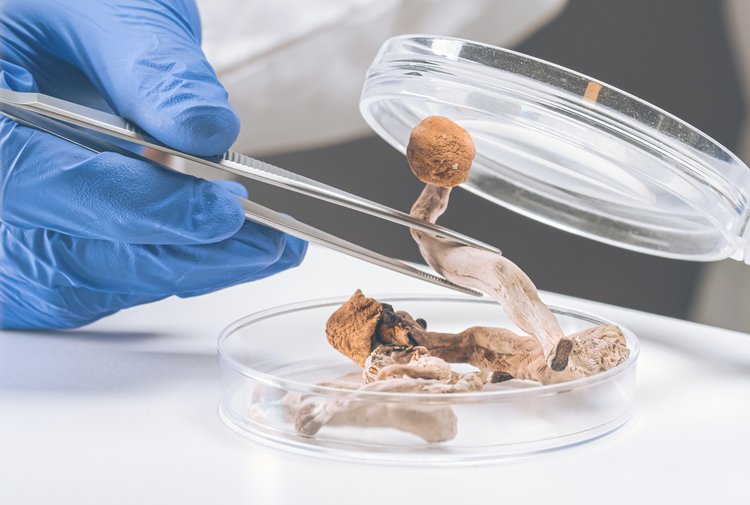Psilocybin, the active compound in “magic mushrooms,” has sparked significant scientific interest for its potential therapeutic effects on the brain. When ingested, psilocybin is converted into psilocin, which interacts with specific serotonin receptors, primarily the 5-HT2A receptor, resulting in altered perception, mood, and cognition. This interaction is key to understanding psilocybin’s impact on the brain and why it holds promise in mental health treatment.
1. How Psilocybin Affects Brain Connectivity and Neuroplasticity
One of the most notable effects of psilocybin is its ability to increase “cross-talk” between different brain regions that do not typically communicate intensively. This effect, observed through brain imaging studies, enhances neural connectivity and promotes neuroplasticity, or the brain’s ability to reorganize itself by forming new neural connections. This property is especially relevant for treating conditions like depression, where rigid, negative thought patterns are prevalent.
Research shows that psilocybin can disrupt the “default mode network” (DMN), a brain network associated with self-referential thoughts, rumination, and the sense of self. Overactivity of the DMN has been linked to conditions like depression and anxiety, and psilocybin’s disruption of the DMN can offer patients a “reset” experience, allowing new, more positive thought patterns to form.
2. Effects on Serotonin Receptors
Psilocin’s binding to serotonin receptors (mainly 5-HT2A) is believed to cause its hallucinogenic effects and potential mood-lifting benefits. Serotonin, a neurotransmitter known to affect mood and social behavior, is often targeted by traditional antidepressants. However, psilocybin’s effects are more complex: it activates these receptors in a unique way, leading to altered states of consciousness and enhanced emotional sensitivity. Studies suggest this serotonin receptor activity might be why many psilocybin users report feelings of emotional release, introspection, and, ultimately, healing.
3. Therapeutic Potential: Depression, PTSD, and Beyond
Psilocybin is increasingly studied as a treatment for depression, particularly in cases resistant to traditional therapies. Clinical trials, including those conducted at institutions like Johns Hopkins and Imperial College London, have shown promising results. For example, one study found that a single dose of psilocybin, combined with psychotherapy, produced long-lasting improvements in depression symptoms.
Moreover, psilocybin shows potential in addressing PTSD by helping patients process trauma without the emotional detachment that often accompanies other treatments. By encouraging openness and reducing fear response, psilocybin can allow individuals to revisit traumatic memories in a way that feels safe and manageable.
4. Psilocybin’s Impact on Brain Waves and Consciousness
Psilocybin affects brain waves associated with various states of consciousness. For instance, it decreases alpha waves, which are typically present in relaxed wakefulness, and increases gamma waves, associated with higher-order brain function and binding of perceptions. This effect could explain why people experience a shift in consciousness, enhanced sensory perception, and spiritual-like insights during a psilocybin experience.
5. The Mystical Experience and Its Psychological Benefits

Many users report a profound “mystical” experience while on psilocybin, characterized by feelings of unity, transcendence, and ego dissolution. Research indicates that such experiences can correlate with long-term positive changes in mood and outlook. This mystical experience, alongside the brain’s newfound connectivity, may be central to the therapeutic effects observed in clinical settings. One theory suggests that ego dissolution allows individuals to let go of rigid self-identities or negative mental narratives, leading to significant emotional breakthroughs.
6. Risks and Considerations
While psilocybin shows therapeutic promise, it is essential to approach it with caution. Negative experiences, often called “bad trips,” can arise from taking too high a dose, using psilocybin in stressful environments, or lacking adequate support. Additionally, for individuals with a history of psychosis or certain mental health conditions, psilocybin may exacerbate symptoms. Hence, clinical research typically pairs psilocybin with guided therapy, where trained professionals help guide the patient’s experience.
Conclusion: A New Frontier in Mental Health
The scientific understanding of psilocybin’s impact on the brain is still evolving, yet the initial results are promising. By promoting neuroplasticity, influencing serotonin receptors, and enhancing connectivity in the brain, psilocybin may offer new hope for those struggling with mental health challenges like depression, PTSD, and anxiety. As research continues, psilocybin could become an integral part of modern mental health treatment, offering unique benefits that traditional therapies may not provide.

No Responses